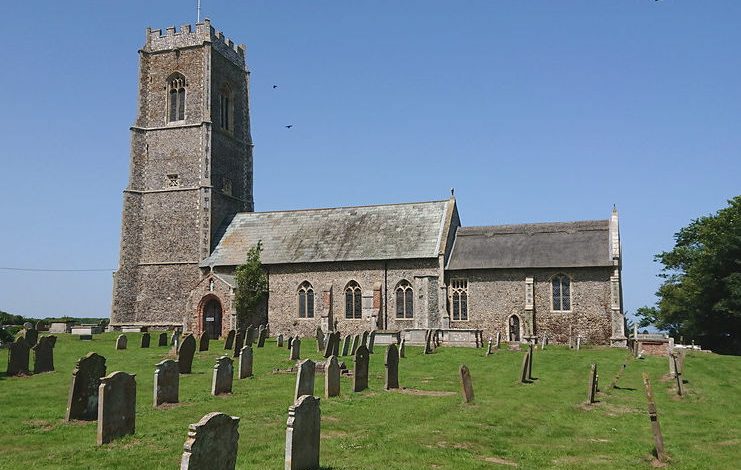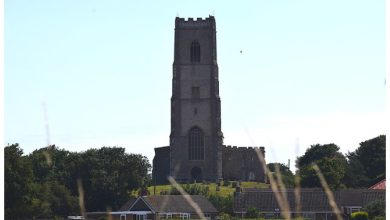North Norfolk church swindler dies aged 70

The story of Derek Klein, a former church treasurer from Norfolk, is a complex and tragic one. At the age of 70, Klein met an untimely demise after choking, leaving behind a legacy of deception and addiction. But before his life took a turn for the worse, Klein had built a reputation as a respected member of his community, serving as the treasurer for two parochial church councils in north Norfolk – Bacton and Ridlington. Unbeknownst to the trusting congregations, however, Klein had been secretly exploiting his position to fund his own personal addictions, using the church’s money to feed his obsessions with stamp collecting and online gambling. Over the course of 23 years, Klein managed to siphon off a staggering £70,000, with £57,000 taken from Bacton and £13,000 from Ridlington.
Klein’s ability to conceal his theft for so long was a testament to his cunning and deceit. He had woven a intricate web of lies, carefully manipulating the church’s finances to avoid detection. But, as is often the case, his luck eventually ran out. The suspicions of Rev Dr Richard Hines, the former priest in charge of the churches, ultimately led to Klein’s downfall. In 2007, Klein was brought to justice and sentenced to 16 months in prison for his crimes. At the time, it was revealed that Klein had become one of the country’s top five stamp dealers, with a collection that was both impressive and extensive. The prosecution had wanted to seize the collection and sell it at auction, but Klein warned that this approach would only yield a fraction of its true value. Instead, he was allowed to sell the stamps himself via eBay, with the proceeds going towards repaying the stolen funds.
The case against Klein was a shocking one, and it sent ripples throughout the community. The fact that a trusted and respected member of the congregation could so callously exploit his position for personal gain was a disturbing revelation. As the news of Klein’s imprisonment spread, many were left to wonder how such a brazen scheme could have gone undetected for so long. The churches, which had placed their trust in Klein, were left to pick up the pieces and try to make sense of the betrayal. In the years that followed, Klein worked to repay the stolen funds, with the final payment of £6,990 being made in April 2013. It was a long and difficult road to redemption, but Klein seemed to be making amends for his past mistakes.
Despite his best efforts to make amends, however, Klein’s life was ultimately cut short in a tragic and unexpected manner. On May 16, 2024, he died at the Norfolk and Norwich Hospital after choking, leaving behind a legacy of complexity and contradiction. An inquest into his death was scheduled to take place at Norfolk Coroner’s Court, but was adjourned due to outstanding evidence. As the investigation into Klein’s death continues, it serves as a poignant reminder of the fragility of life and the unpredictability of human nature. Klein’s story is a cautionary tale about the dangers of addiction and the importance of accountability, but it also raises questions about the nature of redemption and the human capacity for forgiveness.
As we reflect on Klein’s life and legacy, it is clear that his story is one of both tragedy and complexity. On the one hand, his actions were reprehensible and caused harm to those who trusted him. On the other hand, his struggles with addiction and his attempts to make amends are a testament to the human capacity for growth and change. The fact that Klein was able to build a successful business as a stamp dealer, and that he was able to repay the stolen funds, suggests that he was a man of intelligence and resourcefulness. And yet, his life was also marked by darkness and deceit, a reminder that even the most talented and capable individuals can struggle with their own personal demons.
The image of Bacton Church, pictured above, serves as a poignant reminder of the community that was affected by Klein’s actions. The church, with its picturesque tower and tranquil surroundings, is a symbol of the trust and faith that was betrayed by Klein’s deceit. As we consider the story of Derek Klein, we are reminded of the importance of accountability and transparency, particularly in positions of trust. We are also reminded of the human capacity for forgiveness and redemption, and the importance of seeking help and support when struggling with addiction. Ultimately, Klein’s story is a complex and multifaceted one, full of contradictions and paradoxes. It is a story that challenges us to think critically about the human condition, and to consider the ways in which we can work towards creating a more just and compassionate society.








